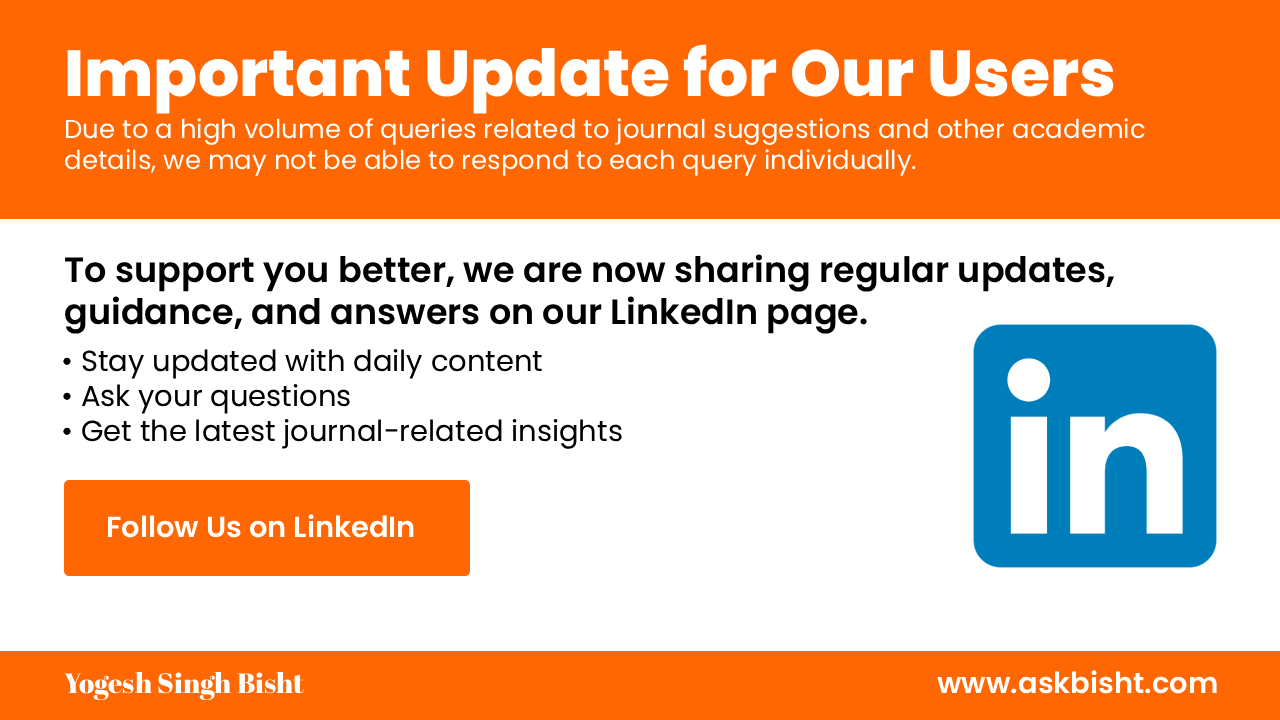Journal of Islamic Thought and Civilization
Published by University of Management and Technology (Journal Finder)
ISSN : 2075-0943 eISSN : 2520-0313
Abbreviation : J. Islam. Thought Civiliz.
Aims & Scope
The Journal of Islamic Thought and Civilization (JITC) is HEC recognized Journal, presents a trailblazing platform to Islamic scholars and social scientists for the publication of their research articles.
The JITC is a peer reviewed, bi-annual Journal published in spring and autumn.
We strive for a global readership and thus have always encouraged contribution from around the world.
View Aims & ScopeMetrics & Ranking
SJR (SCImago Journal Rank)
| Year | Value |
|---|---|
| 2024 | 0.273 |
Quartile
| Year | Value |
|---|---|
| 2024 | Q1 |
h-index
| Year | Value |
|---|---|
| 2024 | 6 |
Journal Rank
| Year | Value |
|---|---|
| 2024 | 17579 |
Journal Citation Indicator
| Year | Value |
|---|---|
| 2024 | 117 |
Abstracting & Indexing
Journal is indexed in leading academic databases, ensuring global visibility and accessibility of our peer-reviewed research.
Subjects & Keywords
Journal’s research areas, covering key disciplines and specialized sub-topics in Arts and Humanities and Social Sciences, designed to support cutting-edge academic discovery.
Licensing & Copyright
This journal operates under an Open Access model. Articles are freely accessible to the public immediately upon publication. The content is licensed under a Creative Commons Attribution 4.0 International License (CC BY 4.0), allowing users to share and adapt the work with proper attribution.
Copyright remains with the author(s), and no permission is required for non-commercial use, provided the original source is cited.
Policy Links
This section provides access to essential policy documents, guidelines, and resources related to the journal’s publication and submission processes.
- Aims scope
- Homepage
- Oa statement
- Author instructions
- License terms
- Review url
- Board url
- Copyright url
- Plagiarism url
- Preservation url
- Apc url
- License
Plagiarism Policy
This journal follows a plagiarism policy. All submitted manuscripts are screened using reliable plagiarism detection software to ensure originality and academic integrity. Authors are responsible for proper citation and acknowledgment of all sources, and any form of plagiarism, including self-plagiarism, will not be tolerated.
For more details, please refer to our official: Plagiarism Policy.
APC Details
The journal’s Article Processing Charge (APC) policies support open access publishing in Arts and Humanities and Social Sciences, ensuring accessibility and quality in research dissemination.
This journal does not charge a mandatory Article Processing Charge (APC). However, optional open access publication may incur fees based on the publisher’s policies.
Explore journals without APCs for alternative publishing options.
Most Cited Articles
The Most Cited Articles section features the journal's most impactful research, based on citation counts. These articles have been referenced frequently by other researchers, indicating their significant contribution to their respective fields.
-
The Concept of the ‘Evil’ and the ‘Evil Eye’ in Islam and Islamic Faith-Healing Traditions
Citation: 12
Authors: Azher Hameed
-
Islamic Perspective of Leadership: A Role Model for Today’s CEOs
Citation: 11
Authors: Muhammad Yousaf
-
The Development of Waqf in the Middle East and its Role in Pioneering Contemporary Islamic Civilization: A Historical Approach
Citation: 10
Authors: Abdurrohman
-
The Role of Religion in Establishing Peaceful Coexistence in Society
Citation: 9
Authors: Muhammad Zaman, Farman
-
The Concept of Tawhid in Islam: An Overview of the Perspectives of Some Prominent Muslim Scholars
Citation: 8
Authors: Asma
-
Impact of Formal Networks on Women Entrepreneurship in Pakistan
Citation: 8
Authors: Arooj, Shahid Jan
-
Wasatiyyah (Islamic Moderation): A Conceptual Analysis from Islamic Knowledge Management Perspective
Citation: 7
Authors: Muhamadul, Khatijah
-
Religion as a Pillar for Establishing a Civilization: Al-MÄwardī’s Perspective
Citation: 6
Authors: Fadi
